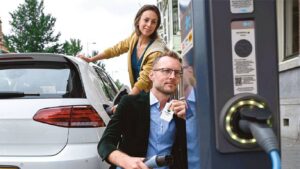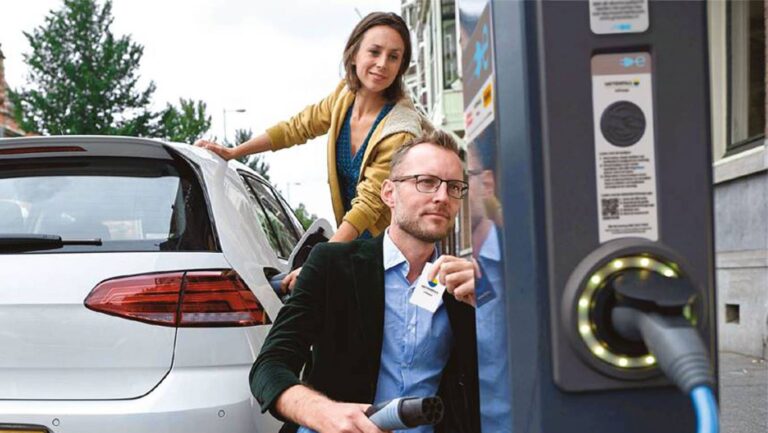Some 80 public charging stations owned by 11 Dutch municipalities have now been equipped with software that controls the charging speed for EVs according to the supply of electricity.
Developed by Vattenfall, the Green Charging system analyses the amount of electricity available to determine how fast vehicles are charged.
When the available amount of electricity is high, vehicles are charged at maximum speed, while the charging speed is temporarily reduced if the supply drops, for instance due to less wind.
According to Vattenfall, this helps to accommodate the fluctuations in electricity supply, allowing a higher proportion of renewable energy in the system.
The participating municipalities have made 80 charging stations available for the pilot project.
“Sustainable charging is vital for sustainable driving of electric vehicles. And systems, like the one we are introducing now, are a crucial development for the energy transition and for achieving our and society’s goals for air quality and the climate,” said Tomas Björnsson, head of e-mobility, Vattenfall.
“Through this pilot, we want to showcase that by combining our InCharge charging services and our trading services, we can facilitate a better utilisation of the grid, just as drivers of electric vehicles can potentially look forward to lower tariffs in the longer term.”

The software developed by Vattenfall links the charging stations to a so-called ‘imbalance market’, where the amount of electricity generated and consumed is precisely monitored.
Every 15 minutes the charging software checks how much electricity is available and adjusts the capacity of the charging stations accordingly.
The software also has built in restrictions. For example, charging takes place at maximum capacity for the first 30 minutes, and capacity is not reduced for more than 30 minutes during a three-hour period.
By doing so, the Green Charging system is said to avoid periods when less power is generated and electricity is more expensive.
The Green Charging system is one of three pilots running in the Netherlands and Germany.
Vattenfall holds the concession for public charging of EVs in Amsterdam.
It operates more than 3,500 charging points in the Dutch capital city, of which around 900 are included in Vattenfall’s Flexpower project, where the charging stations are steered based on daily load curves from the grid operator and forecasts for local neighbourhood solar panel production.
In Berlin, Vattenfall and Berlin Waste Management (BSR), which is responsible for waste management for two million households in the city, are carrying out another pilot project for flexible charging of BSR’s 80 EVs.
Vattenfall is optimising the charging by steering it to times when prices are low, such as when there is high wind and solar power generation and demand is low.
Read more from CiTTi
https://www.cittimagazine.co.uk/ccs-launches-ev-charging-infrastructure-agreement/
https://www.cittimagazine.co.uk/liberty-global-ventures-and-zouk-capital-partner-in-ev-charging-joint-venture/





